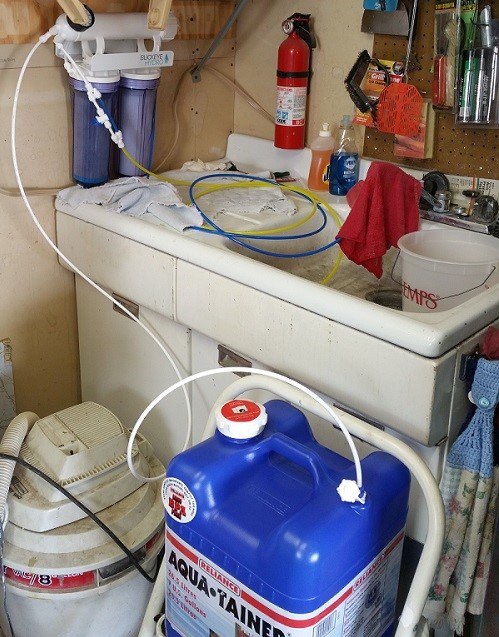I've been brewing for many years using Distilled Water purchased from the grocery store or Target. I'm way past the point of being tired of it and am in the process of converting my basement "homebrew storage area" into my "electric indoor brewing area". I've put in some plumbing for a dedicated tap to hook up to what I had planned for a Reverse Osmosis system.
However, while researching this, I see they typically make 3-4 gallons of waste water for every gallon of RO water. That seems pretty wasteful.
And the flow rate on most systems is about 3 gallons of RO water per hour. So even my typical small 2.5 gallon batches will need almost 2 hours of water collection. And I'm not really that patient.
I live in the Detroit area, and our tap water generally speaking is pretty good right out of the tap. I was thinking I could probably get away with a simple single stage or dual stage filter set-up and eliminate the waste water and speed up the throughput.
Anyone else do the same? What water contaminants are the most critical that wouldn't be taken care of already with city water processing?
However, while researching this, I see they typically make 3-4 gallons of waste water for every gallon of RO water. That seems pretty wasteful.
And the flow rate on most systems is about 3 gallons of RO water per hour. So even my typical small 2.5 gallon batches will need almost 2 hours of water collection. And I'm not really that patient.
I live in the Detroit area, and our tap water generally speaking is pretty good right out of the tap. I was thinking I could probably get away with a simple single stage or dual stage filter set-up and eliminate the waste water and speed up the throughput.
Anyone else do the same? What water contaminants are the most critical that wouldn't be taken care of already with city water processing?
















































![Craft A Brew - Safale BE-256 Yeast - Fermentis - Belgian Ale Dry Yeast - For Belgian & Strong Ales - Ingredients for Home Brewing - Beer Making Supplies - [3 Pack]](https://m.media-amazon.com/images/I/51bcKEwQmWL._SL500_.jpg)










